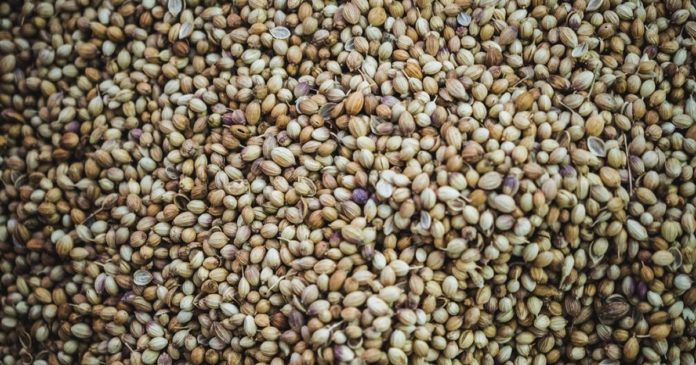Rather than just being treated as waste, hemp seed hulls harbour compounds that could be beneficial to human health.
Hemp seeds purchased for food purposes have often been “hulled”, meaning they’ve had their outer shells removed to leave the only the “heart” – the tasty part. The shells are usually disposed of as waste, although there are various initiatives under way to make better use of them.
US company Brightseed, which identifies hidden compounds in plants using an artificial intelligence (AI) system, says two preclinical studies published in the Nature peer-reviewed journal Cell Death and Disease (here and here), indicated the compounds N-trans-caffeoyltyramine (NCT) and N-trans-feruloyltyramine (NFT) showed potential to clear fat from the livers of mice and in human cells.
Both these compounds are present in hemp hulls says Brightseed.
“Hemp is one of the most sustainable and versatile crops on the planet, and hemp hearts are celebrated for their dense nutritional profile,” said Sofia Elizondo, co-founder, and COO of Brightseed. “The irony is that industry has been tossing the seed shells, or the outer wrapper of hemp hearts, without realizing they are a potential goldmine for human health. Armed with new insight, we can make better use of this sustainable resource.”
Fatty liver disease is a major cause of morbidity and mortality. Among the major risk factors are obesity and type 2 diabetes, but it’s also associated with excessive alcohol consumption. Fatty liver disease is incredibly common, affecting up to a quarter of the world’s population.
This isn’t the first time cannabis has been linked to potential for preventing fatty liver disease. Back in 2017 we reported on a study indicating cannabis may have a protective effect against non-alcoholic fatty liver disease (NAFLD). But in that case, it was thought cannabidiol (CBD) may play a role. There’s very little CBD in the seed – that is mainly found in the hemp flower.
The heart of hemp seeds (which are technically a nut) are packed with nutrition and considered a superfood. It’s nice to think that even the shell could have uses in supporting good health too, and another potential use for the shell is as a source of dietary fibre.
Brightseed’s core AI technology is known as Forager, which the company says has mapped 1.5 million plant compounds – exceeding ten times more than what were previously known.


